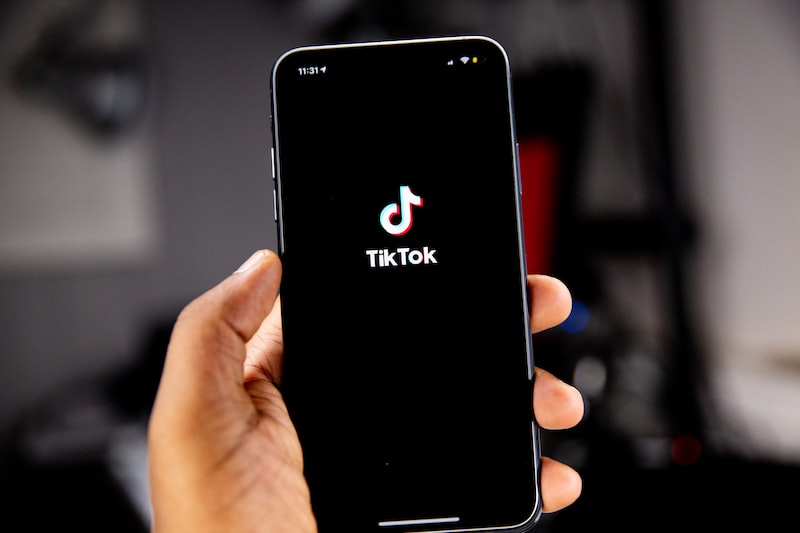Table of Contents

Have you ever wondered about the magic that lies within the walls of a library? Libraries are like treasure chests filled with knowledge, awaiting discovery. In today’s fast-paced digital world, where information is just a click away, libraries might seem outdated to some. However, these literary sanctuaries continue to hold immense value and are essential for several reasons.
First and foremost, libraries foster a love for reading. They provide an escape from the screens that dominate our lives, allowing us to immerse ourselves in the written word. Whether it’s a captivating novel, an informative non-fiction book, or a collection of poems, libraries offer a vast selection to cater to every taste.
Furthermore, libraries play a crucial role in promoting lifelong learning. They serve as hubs of knowledge, catering to individuals of all ages. From toddlers exploring picture books to adults delving into research materials, libraries offer a wealth of resources that nurture intellectual growth.
Libraries also provide a haven for communities. They serve as gathering places where people can connect, share ideas, and engage in discussions. Events such as book clubs, author talks, and workshops create a sense of belonging and stimulate intellectual conversations among diverse individuals.
In addition, libraries bridge the digital divide. While the internet has become a primary source of information, not everyone has equal access to it. Libraries offer computers, Wi-Fi, and other technological resources, ensuring that those who lack personal devices or internet connectivity can still tap into the digital world.
Moreover, libraries are treasure troves of local history and culture. They house archives, manuscripts, and rare collections that preserve the heritage of a community. Exploring these resources allows individuals to grasp the roots of their society, fostering a sense of pride and appreciation for their cultural identity.
Libraries are also champions of literacy. They provide valuable support to students by offering homework assistance, tutoring programs, and access to educational databases. These resources empower learners and contribute to their academic success.
Furthermore, libraries promote creativity and imagination. They offer spaces for artistic expression, such as writing groups, art exhibits, and storytelling sessions. By nurturing creativity, libraries inspire individuals to think outside the box and explore new horizons.
Libraries are not just about books;
they also prioritize inclusivity. They strive to be accessible to all, regardless of socio-economic background, age, or ability. This commitment to inclusivity fosters a sense of equality and ensures that everyone has an opportunity to benefit from the wealth of information and resources available.

Lastly, libraries are bastions of silence and tranquility in a noisy world. They provide peaceful environments conducive to focused study and reflection. The serenity of libraries enables individuals to escape distractions and engage with knowledge on a deeper level.
Unlocking the Secrets: How Libraries Serve as Gateways to Knowledge
Libraries have long been regarded as the gateways to knowledge, offering a treasure trove of information and resources for those eager to learn. These remarkable institutions not only house books but also provide access to a wide array of media, including digital content, periodicals, and audiovisual materials. In this article, we will delve into the secrets behind how libraries serve as invaluable resources for seekers of knowledge.
When you step through the doors of a library, you enter a world brimming with possibilities. Every shelf is filled with stories waiting to be discovered, ideas waiting to be explored, and insights waiting to be unearthed. Whether you seek answers to specific questions or simply wish to broaden your horizons, a library is where you can find it all. Its vast collection allows you to immerse yourself in subjects ranging from history and science to art and literature.
Moreover, libraries are not just repositories of information; they actively foster a sense of community and intellectual growth. They are spaces where people from all walks of life come together to share knowledge and experiences. Libraries host events, workshops, and lectures that bring people together, encouraging dialogue and collaboration. From book clubs to children’s storytime sessions, these activities ignite the spark of curiosity and create lifelong learners.
In today’s digital age, libraries have adapted to embrace technology and offer digital resources alongside traditional printed materials. With online databases, e-books, and audiobooks, libraries ensure that knowledge remains accessible to everyone, regardless of their location or circumstances. They serve as intermediaries between the vast sea of information available on the internet, curating reliable sources and providing guidance in navigating the digital realm.
Furthermore, libraries play a vital role in promoting literacy and education. They provide a safe haven for students to study, research, and complete assignments. For those without access to computers or the internet, libraries bridge the digital divide and ensure equal opportunities for learning. Children discover the joy of reading through library programs and initiatives, fostering a lifelong love for books and learning.
libraries are much more than just buildings filled with books. They are vibrant hubs of knowledge, community, and intellectual growth. Through their extensive collections, inclusive services, and innovative programs, libraries unlock the secrets to knowledge, empowering individuals and enriching communities. So, the next time you step into a library, remember that you are entering a gateway to a world of discovery.
Beyond Books: Discovering the Diverse Offerings of Modern Libraries
Modern libraries have evolved far beyond their traditional role of simply providing books. These vibrant institutions now offer a multitude of diverse offerings that cater to the ever-changing needs and interests of their communities. From cutting-edge technology to engaging community programs, modern libraries are transforming into dynamic spaces for exploration and learning.
One of the most exciting aspects of modern libraries is the incorporation of advanced technologies. In addition to providing access to computers and the internet, many libraries now offer innovative resources like 3D printers, virtual reality equipment, and makerspaces. These technological marvels allow patrons to unleash their creativity, learn new skills, and bring their ideas to life. Whether it’s designing and printing a custom prototype or immersing themselves in a virtual world, libraries are empowering individuals to explore and experiment like never before.
Furthermore, modern libraries are embracing their role as community hubs by hosting a wide range of programs and events. These activities go beyond the traditional book clubs and storytimes and encompass a diverse array of interests. From workshops on coding and robotics to cooking classes and DIY projects, libraries are fostering a sense of community and lifelong learning. These programs create opportunities for people of all ages to connect, share knowledge, and pursue their passions together.
Moreover, libraries are expanding their collections to include more than just books. They now house an extensive range of multimedia resources, including e-books, audiobooks, music, and movies. With digital lending platforms, patrons can access these resources from anywhere at any time. This convenient accessibility ensures that individuals have a wealth of information and entertainment at their fingertips.
modern libraries have transformed into dynamic spaces that offer far more than just books. By embracing technology, hosting engaging community programs, and diversifying their collections, libraries have become invaluable resources for personal growth, creativity, and community building. So, step beyond the stacks and discover the incredible and diverse offerings that await you at your local library.
The Digital Divide Demystified: How Libraries Bridge the Gap
Have you ever wondered about the digital divide and how it affects our society? In this article, we will delve into this topic and explore how libraries play a crucial role in bridging the gap.
Imagine a world where access to information is limited, and opportunities seem out of reach for certain communities. That’s what the digital divide represents—the disparity between those who have access to technology and the internet and those who don’t. It creates an imbalance in education, employment, and overall socio-economic growth. But fear not, because libraries are here to save the day!
Libraries have long been a haven for knowledge seekers, providing free access to books, research materials, and academic resources. In recent years, they have evolved to adapt to the digital age, transforming themselves into community hubs that offer much more than just printed pages. With state-of-the-art computers, high-speed internet connections, and various digital tools, libraries have become beacons of opportunity for bridging the digital divide.

One of the key ways libraries bridge this gap is by offering free internet access to individuals who may not have it at home. They provide a safe and welcoming space where anyone can come in, connect to the web, and explore a world of information and possibilities. Whether it’s a student researching for a project or an adult searching for job opportunities, libraries empower individuals to overcome the hurdles imposed by the digital divide.
Moreover, libraries offer various digital literacy programs to help people develop the necessary skills to navigate the digital landscape successfully. From basic computer courses to workshops on coding and programming, these programs equip individuals with the knowledge they need to thrive in the digital era. By empowering people with digital literacy skills, libraries enable them to participate fully in today’s interconnected world.
In addition to internet access and digital literacy programs, libraries often provide access to e-books, online databases, and multimedia resources. This wealth of digital content ensures that even those without physical access to books or expensive subscriptions can still engage with educational and recreational materials. Libraries truly democratize access to information, ensuring that everyone has an equal chance to learn and grow.
From Fiction to Fact: How Libraries Nurture Lifelong Learning
Libraries have long been the cornerstone of knowledge and learning, bridging the gap between fiction and reality. These invaluable institutions play a crucial role in nurturing lifelong learning in individuals of all ages. But what makes libraries such powerful catalysts for intellectual growth?
In today’s digital age, where information is readily available at our fingertips, some may question the relevance of libraries. However, these modern-day repositories of wisdom offer so much more than just a collection of books. They provide an immersive experience that engages all our senses and encourages us to explore beyond the confines of our screens.
Libraries transcend the boundaries of fictional worlds, transporting us into realms of knowledge and imagination. The vast array of books, from classic literature to contemporary works, opens doors to diverse perspectives and helps us broaden our horizons. Whether it’s delving into the mysteries of ancient civilizations or embarking on thrilling adventures alongside fictional heroes, libraries ignite our curiosity and fuel our thirst for learning.
Beyond books, libraries embrace technology and innovation, adapting to the ever-evolving needs of their patrons. With the advent of e-books, audiobooks, and online databases, information is now easily accessible to anyone with an internet connection. Libraries serve as digital gateways, offering free access to a wealth of educational resources that might otherwise be out of reach for many.
Moreover, libraries are not limited by age or academic qualifications. They welcome learners of all backgrounds, providing a safe and inclusive space for personal growth. From storytime sessions for young children to workshops and lectures for adults, libraries foster a sense of community and encourage lifelong learning as a shared experience.
Just as a gardener tends to a seedling, libraries nurture the seeds of knowledge within us all. They act as catalysts, cultivating a love for learning that transcends generations. By fostering critical thinking, creativity, and a thirst for discovery, libraries empower individuals to become active participants in the world around them.
So, next time you step into a library, allow yourself to be captivated by the wonders that lie within. Embrace the journey from fiction to fact, and let libraries become your guide on the path of lifelong learning.





